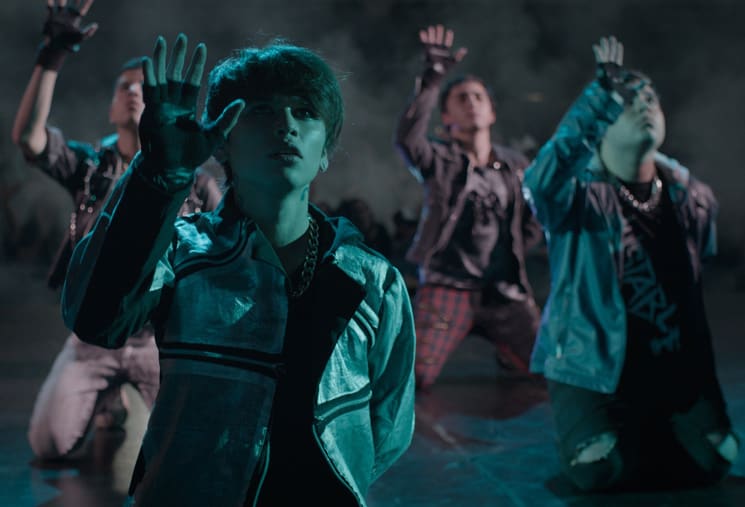Father-son conflicts have provided plenty of rich storytelling potential at least since the beginnings of Christianity, and it provides the central theme once again in Chilean director Fernando Guzzoni's (Dog Flesh) appropriately named Jésus. Beyond the typical neglect and aggression that often define these relationships, the film attempts to confront the difficulty of breaking out of that negative cycle.
Jésus (Nicolás Durán) should get his act together and continue his schooling; his father, Héctor (Alejandro Goic, of the 2015 priest-in-exile drama The Club), mentions it every time the two see each other. His son accomplishing something, anything in life is the great wish of Héctor, who's forced to leave his son alone for days at a time while he leaves the city for work. While Héctor's away, Jésus burns through a ne'er-do-well checklist, huffing aerosol and getting drunk with friends and acquaintances.
Early on, Jésus puts the money he talked out of his dad for a new pair of glasses towards a snuff video purchase. He laughs at the conclusion, showing just how disconnected he is from humanity and presaging a violent night later in the film that will have terrible consequences for him and his father.
Unlike his father, Jésus doesn't want or expect much from life. The film follows him from a Korean pop contest early on –– a pursuit that never seems to hold his interest for very long –– to graphic sex that he wanders into. Indeed, while it's unclear whether Guzzoni intended it to mirror Jésus's worldview or not, the film gives precious little visibility or dialogue to women; the only woman with even passing screen-time is only there for unprotected sex with Jésus. The fact that it's hard to tell can't help but feel like a failure on Guzzoni's part.
The disconnected action here doesn't build towards anything until late in the film. If Jésus' half-hearted, teenage day-to-day isn't quite compelling, Héctor's full-hearted disappointment is. His pragmatic, traditionally masculine ways manifest throughout, but it's the deep, inscrutable air Goic's performance gives him that draws us in whenever he's on screen. If only it were enough to support the whole film.
(Rampante Films)Jésus (Nicolás Durán) should get his act together and continue his schooling; his father, Héctor (Alejandro Goic, of the 2015 priest-in-exile drama The Club), mentions it every time the two see each other. His son accomplishing something, anything in life is the great wish of Héctor, who's forced to leave his son alone for days at a time while he leaves the city for work. While Héctor's away, Jésus burns through a ne'er-do-well checklist, huffing aerosol and getting drunk with friends and acquaintances.
Early on, Jésus puts the money he talked out of his dad for a new pair of glasses towards a snuff video purchase. He laughs at the conclusion, showing just how disconnected he is from humanity and presaging a violent night later in the film that will have terrible consequences for him and his father.
Unlike his father, Jésus doesn't want or expect much from life. The film follows him from a Korean pop contest early on –– a pursuit that never seems to hold his interest for very long –– to graphic sex that he wanders into. Indeed, while it's unclear whether Guzzoni intended it to mirror Jésus's worldview or not, the film gives precious little visibility or dialogue to women; the only woman with even passing screen-time is only there for unprotected sex with Jésus. The fact that it's hard to tell can't help but feel like a failure on Guzzoni's part.
The disconnected action here doesn't build towards anything until late in the film. If Jésus' half-hearted, teenage day-to-day isn't quite compelling, Héctor's full-hearted disappointment is. His pragmatic, traditionally masculine ways manifest throughout, but it's the deep, inscrutable air Goic's performance gives him that draws us in whenever he's on screen. If only it were enough to support the whole film.
